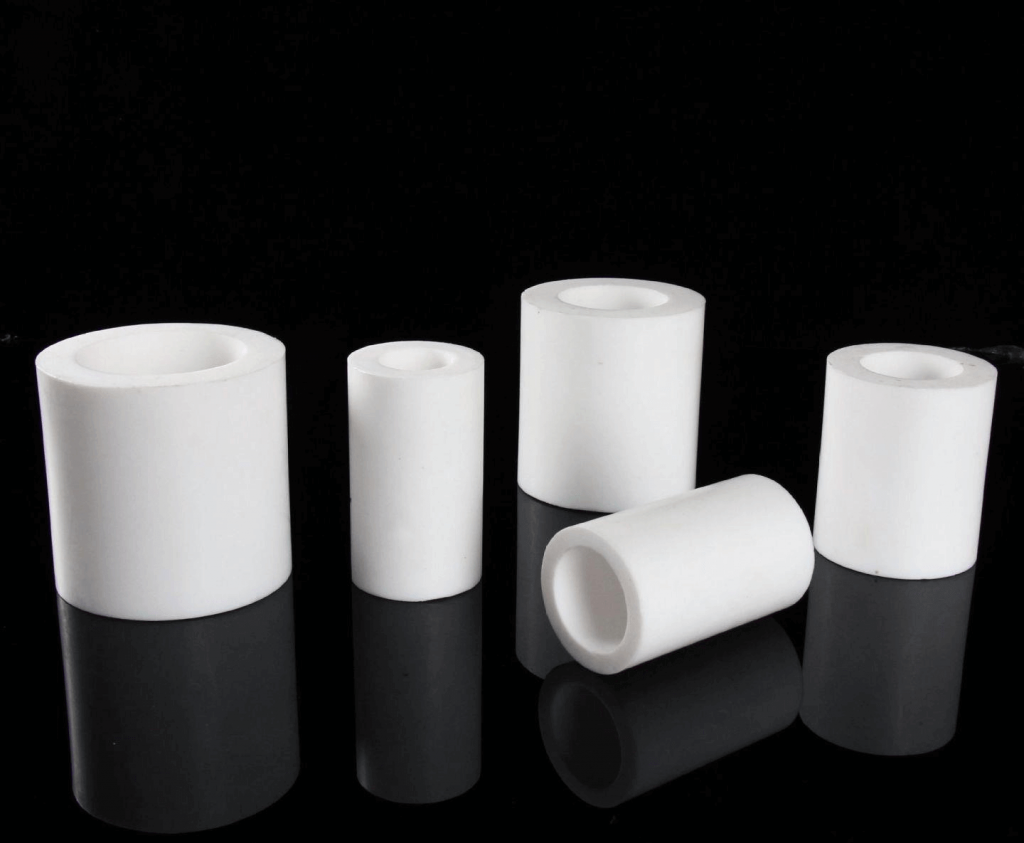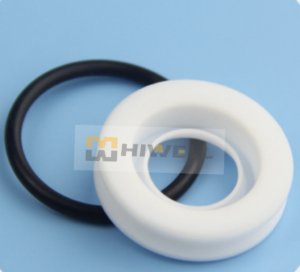Contents
The unique properties of PTFE make it widely used in industrial and marine fields such as chemical industry, petroleum, textile, food, papermaking, medicine, electronics and machinery.
Top 5 Different Applications and Advantages for PTFE
-
Application of anti-corrosion properties
Because rubber, glass, metal alloy and other materials have defects in corrosion resistance, it is difficult to meet the harsh environment of temperature, pressure and chemical media coexistence, and the resulting losses are quite alarming. PTFE materials have become the main corrosion-resistant materials in petroleum, chemical, textile and other industries due to their excellent corrosion resistance. Its specific applications include: pipelines for transporting corrosive gases, exhaust pipes, steam pipes, rolling mills, high-pressure oil pipes, high, medium and low pressure pipes for aircraft hydraulic systems and cold press systems, rectification towers, heat exchangers, kettles, towers, Tank lining, valves and other chemical equipment.
The performance of the seal has a great influence on the efficiency and performance of the entire machine equipment. PTFE material has the characteristics of corrosion resistance, aging resistance, low friction coefficient, non-stickiness, wide temperature range, and good elasticity, making it very suitable for the manufacture of seals with high corrosion resistance requirements and operating temperatures higher than 100 °C. Such as machines, heat exchangers, high-pressure vessels, large-diameter vessels, valves, seals for grooved flanges of pumps, seals for glass reaction pots, flat flanges, and large-diameter flanges, shafts, piston rods, valve rods, Seals for worm gear pumps, tie rods, etc.
-
Application of low friction performance in load
Because the friction parts of some equipment are not suitable for lubricating, for example, in the occasions where the lubricating oil will be dissolved by solvents and become invalid, or the products in the papermaking, pharmaceutical, food, textile and other industrial fields need to avoid lubricating oil contamination, which makes filled PTFE materials become The most ideal material for oil-free lubrication (direct load bearing) of mechanical equipment parts. This is because the material has the lowest coefficient of friction of any known solid material.
Its specific uses include bearings for chemical equipment, papermaking machinery, and agricultural machinery, as piston rings, machine tool guide rails, and guide rings; in civil engineering engineering, they are widely used as bearings for bridges, tunnels, steel structure roof trusses, large chemical pipelines, and storage tanks. Supporting sliders, and used as bridge bearings and bridging swivels, etc. -
In the application of electrical and electronic
The inherent low loss and small dielectric constant of PTFE materials make it possible to make enameled wires for micro motors, thermocouples, control devices, etc.; PTFE films are ideal for manufacturing capacitors, radio insulating gaskets, insulating cables, motors and transformers Insulating materials are also one of the indispensable materials for industrial electronic components such as aerospace.
Oxygen sensors can be manufactured by using the selective permeability of fluoroplastic film, which has high permeability to oxygen and small permeability to water vapor; using the characteristics of fluoroplastics to deviate from polarity to charge under high temperature and high pressure, Microphones, speakers, parts on robots, etc. can be manufactured; optical fibers can be manufactured by utilizing its low refractive index characteristics.
-
Application in medical medicine
The expanded PTFE material is purely inert, has very strong biocompatibility, will not cause rejection by the body, has no physiological side effects on the human body, can be sterilized by any method, and has a microporous structure, so it can be used in a variety of rehabilitation solutions , including artificial vessels and patches for soft tissue regeneration and surgical sutures for vascular, cardiac, general surgery and plastic surgery.
-
Application of anti-stick properties
PTFE material has the smallest surface tension among solid materials, does not adhere to any substance, and also has excellent high and low temperature resistance characteristics, which makes it widely used in anti-sticking aspects such as making non-stick pans. The anti-adhesive process mainly includes two types: installing PTFE parts or sheets on the substrate, and covering the substrate with PTFE coating or varnish composited with glass after heat shrinkage.
With the continuous development of material application technology, the three major shortcomings of PTFE materials: cold flow, difficult welding, and difficult melting processability are gradually being overcome, so that it is used in optics, electronics, medicine, petrochemical oil transportation and anti-seepage, etc. Broader application prospects in various fields.



